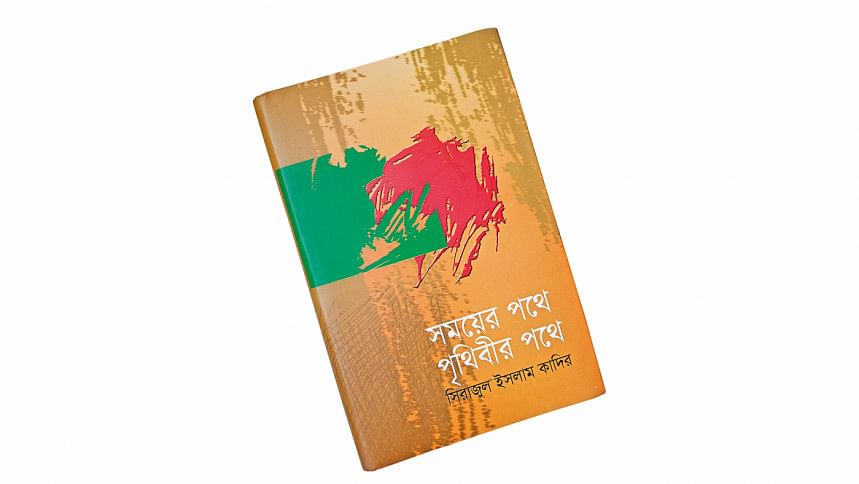Down the memory lanes of journalism

Serjaul islam Quadir is both an individual and a representative of his time says Prof. Serajul Islam Chowdhury in his ever-eloquent words put together in the forward to the book. The book is a part memoir and part professional reflection built around Quadir's life as a journalist from the 70s till now. It is unreservedly informative and non-judgmental. Perhaps the fact that he has been in news agency journalism (Reuters) has played a role as in that media genre its news, not opinion, that matters.
But the articles are not just a mouthpiece of his time and work. Prof. Chowdhury says that Quadir was eminently suitable to be a teacher but he chose to report on contemporary events. There is a certain dedication attached to such choices and that applies to Quadir too. But the articles compiled here are not anonymous. The writer is present in them which gives a face to the words which media agency reports often lack.
The articles are primarily notes on his professional life and the encounters he made. The functions and the pleasures of media life are told engagingly and anyone who wants to know how the machine called media works from inside could use this as an interesting introduction.
Encounter with Sheikh Mujib: Yet the most significant article in the book doesn't deal with the media but an incident of the pre 1975 era when he and a few others got caught up in some extreme Left politics albeit marginally, but even worse as they got arrested. Quadir describes the terror and anxiety with eloquence, slowly taking the reader through the experience of being hauled in on such a charge. He describes the time spent on police custody and also what their family was going through in that period. This includes raids by search parties at some of their homes.
What makes the story so significant is their encounter with Sheikh Mujibur Rahman. It is difficult to imagine such a situation today that the head of the government would meet a bunch of young boys who have been accused of terrorism. The meeting took place at Sugandha-near Sheraton Hotel- which served as Sk. Mujib's political office. He talked to them more like a guardian and they as delinquent nephews.
The author describes the great leader and how he felt the sense of being in front of the Father. He describes the emotions as being similar to what his own children had experienced when away from their mother for a while and reuniting later.
They all gave signed declarations not to get involved with 'subversive activities' and were let go.
Ethics and values and salaries too: An interesting article in the book is a conversation between the author and a senior veteran member of the AP new agency Arnold Zeitlin. The discussion was about the structure, principles and functioning of the media. This is an important piece because the issues are put in perspective by both. Point is, most discussions on media are carried out by media workers but are read by the consumers who may have a different idea about how media works and its challenges.
This article is a good way to get introduced to the issue because the internal understanding of the structure, bereft of the often inevitability of profession can cause a distance between the worker and the consumer.
Whether they lay in the conceptual realm of what media function is can thus be the question that is central to the topic of understanding what media is. Its meaning is both significant and it also carries meanings that are specific to the group consuming the product. Media is not a social service but a professional trade of facts; hence an economic entity too. Unless sponsored by the government or a business house, it can't survive unless it goes commercial.
However, the perspective of the readers is probably that the media is a social activist agency and will fight against injustice and political democracy even before acting professionally. In between, there may be many other visions at work. Together they make up the multiple faced worlds of media. Media therefore could well be an evolving space and that needs to be framed.
Quadir has written an excellent narrative from an insider's perspective which is mercifully free of political rants. Instead, he has talked of media matters and encounters including visits to China and Russia where we meet expatriate Bangladeshis in a very far away land. Essentially, he remains a journalist.
The book was a pleasant read which deserves more readers and more discussions on media and the self.
Afsan Chowdhury is a journalist and academic who has authored and co-authored over 30 books.

 For all latest news, follow The Daily Star's Google News channel.
For all latest news, follow The Daily Star's Google News channel. 




Comments